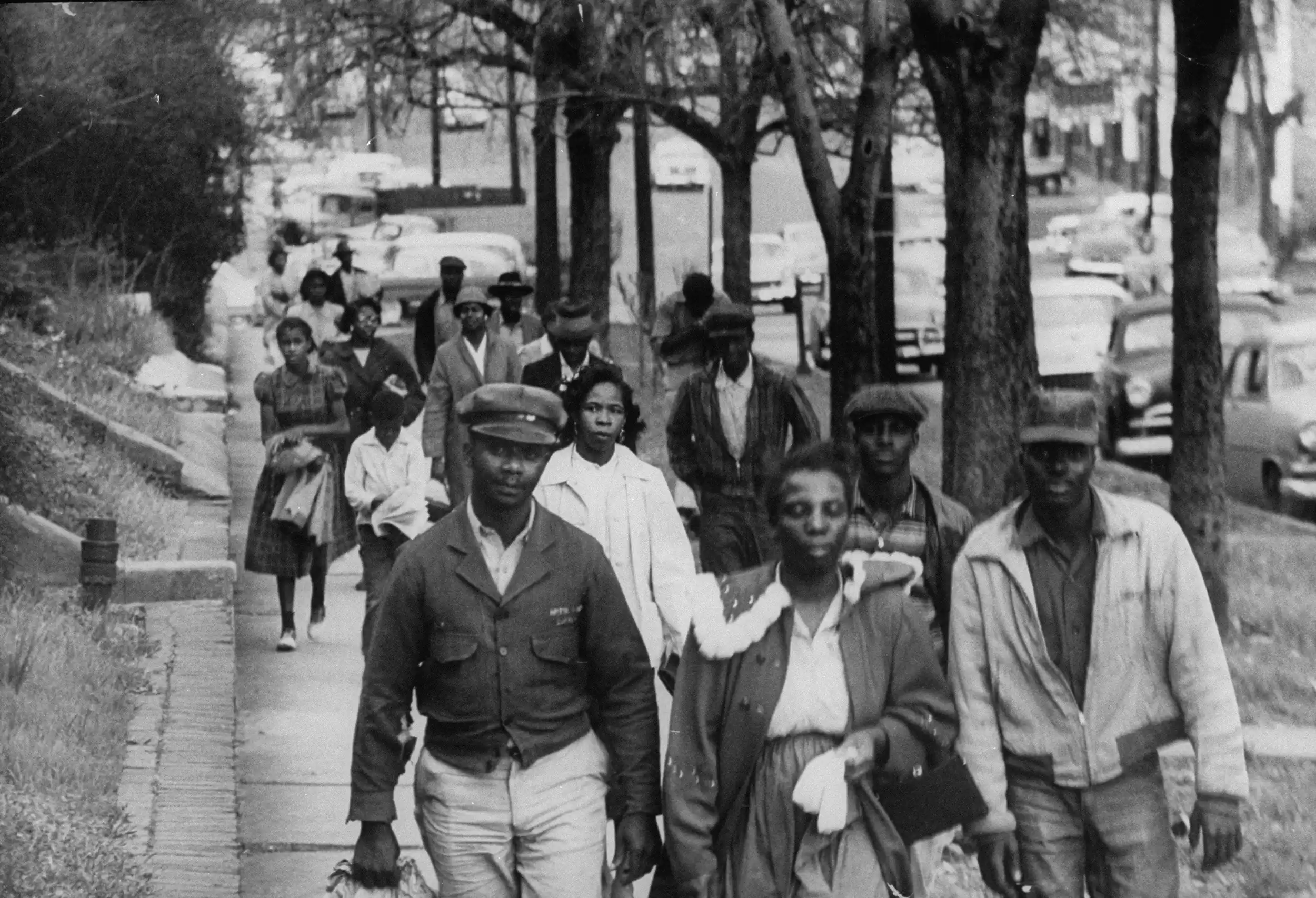Alabama brawl spotlights Montgomery's racial history
A viral video of a brawl in Montgomery, Alabama, has sparked conversations about racial tensions in America. Arrest warrants have been issued for three men involved in the altercation, but no hate crime or racially biased charges have been filed. Historians note that Montgomery has a storied racial history, including its role in the trans-Atlantic slave trade and the Civil Rights Movement. The city is often called the "Cradle of the Confederacy" and was ground zero for protests against segregation. Montgomery elected its first Black mayor in 2019.
The recent viral video capturing a chaotic brawl along Montgomery, Alabama's riverfront has reignited discussions about racial tensions in America. The altercation involved a group of White boaters and a Black co-captain of a riverboat, but quickly escalated when bystanders joined in. Montgomery Police Chief Darryl Albert announced on Tuesday that arrest warrants had been issued for three individuals involved in the fight. Although investigators considered the possibility of charging for a hate crime or inciting a riot, the actions did not meet the necessary criteria.
Despite the lack of charges, the incident has sparked speculation about the underlying motivations behind the brawl, which appeared to be deeply divided along racial lines. Social media users turned images from the fight into memes, with some praising the Black bystanders who came to the defense of the co-captain, even going so far as to swim to his aid. However, beyond the jokes and memes, historians have pointed out that this altercation once again places Montgomery at the forefront of conversations about race.
In downtown Montgomery, not far from the site of the brawl, a historic marker stands as a reminder of the city's involvement in the trans-Atlantic slave trade. According to Joshua D. Rothman, a historian and chair of the Department of History at the University of Alabama, the state played a significant role in the domestic slave trade until the Civil War. Steamboats and railroads transported thousands of enslaved people from New Orleans up the Alabama River to Montgomery in the mid-1800s. Many of the rail routes were built by slave labor. Enslaved individuals would arrive at Montgomery's riverfront or train station, where they would be chained together and paraded down Commerce Street before being sold in the city's slave markets.
By 1860, there were over 435,000 enslaved people in Alabama, making Montgomery one of the most prominent slave trading communities in the state. Rothman emphasizes that the impact of slavery could be seen in all aspects of life, from the local economy to the political and religious spheres. Even today, the legacy of slavery continues to influence various aspects of Montgomery's society.
Montgomery is often referred to as the "Cradle of the Confederacy" due to its brief stint as the first capital of the Confederate States of America in 1861. Delegates from six seceded states gathered in Montgomery to establish their own government after Abraham Lincoln's election as president. The Confederate government later relocated to Richmond, Virginia, where it remained until the end of the Civil War.
The city also played a pivotal role in the Civil Rights Movement. The Montgomery Bus Boycott, sparked by Rosa Parks' arrest for refusing to give up her bus seat to a White man, drew national attention as the first major protest against segregation. Black Americans boycotted city buses, leading to the Supreme Court's ruling against segregated seating. Additionally, the Selma March, which started in Selma and ended in Montgomery, aimed to secure equal voting rights for Black Americans. The march turned violent on the Edmund Pettus Bridge when state troopers attacked the demonstrators, resulting in the infamous "Bloody Sunday." This event propelled the passage of the Voting Rights Act in 1965.
In April 2018, Montgomery opened the National Memorial for Peace and Justice, a museum dedicated to honoring lynching victims and the enslaved. The museum stands on the site of a former warehouse where Black individuals were bought and sold as slaves. Furthermore, in 2019, Montgomery made history by electing its first Black mayor, Steven Reed, 54 years after Bloody Sunday.
The recent brawl serves as a reminder of Montgomery's complex racial history and its ongoing relevance in discussions about race in America. While progress has been made, the city continues to grapple with the legacy of slavery and the fight for racial equality.











Comments on Alabama brawl spotlights Montgomery's racial history